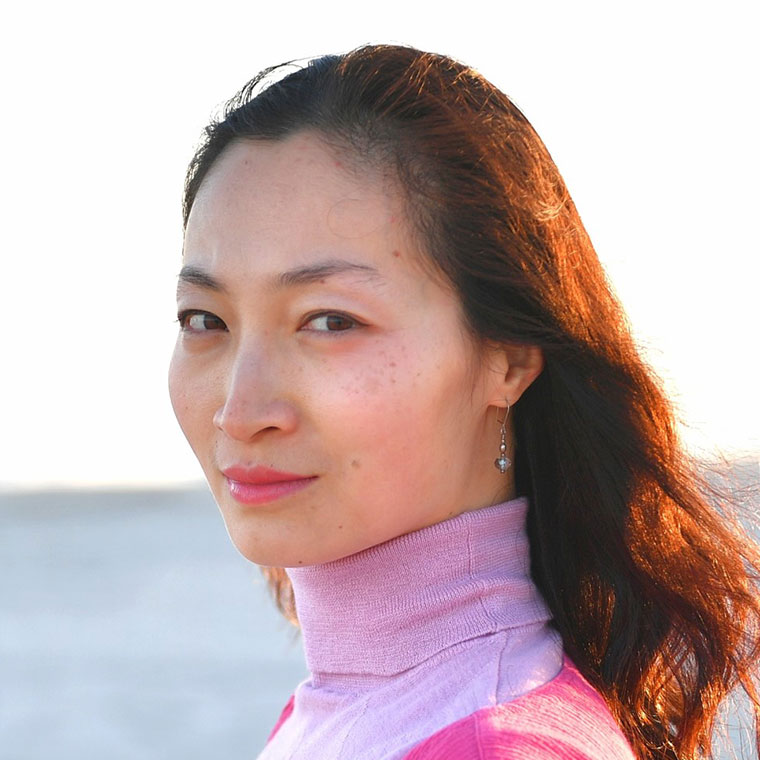Associate Director
BA, SUNY Empire College, MS, Sarah Lawrence College, PhD, European Graduate School; NYS licensed creative arts therapist; Board-certified dance/movement therapist; Certified in Laban/Bartenieff movement analysis. Clinical work: Center for All Abilities, Rockland Psychiatric Center, New York Presbyterian Westchester Behavioral Health. Teaching affiliation: Expressive Therapies Summit, Amanda Kupillas Dance. Publication: “Reciprocal Waves: Embodied Intersubjective Communication in Dance/Movement Therapy Practice” in Body, Movement, and Dance in Psychotherapy 2020 April issue. Current research: “Restorative Decentering: Expressive Arts Therapy in Long-Term Psychosocial Rehabilitation”, and “Aesthetic Encounters on a Forensic Psychiatric Ward.” Movement-based expressive arts practice: Clive Barnes Award and Fred Astaire Award nominee for her excellent performances in the Martha Graham Dance Company and The King and I on Broadway; Interdisciplinary artist and storyteller. SLC, 2021–
Undergraduate Courses 2025-2026
Psychology
Dance and Restoration
Intermediate/Advanced, Large seminar—Fall
PSYC 3146
Prerequisite: at least one prior college-level psychology course; minimum age of 21 for Bedford Hills Correctional Facility clearance requirements
This course, intended for students interested in exploring dance as a restorative act of living, will introduce the existential and social-neurological significance of dance in forming and sustaining human societies and collectively investigate the course inquiry: In the face of suffering and discordance, can we restore hope and connection through dance? Students will learn a diverse map of dance/movement practices categorized by Dance and Suffering, Dance and Joy, and Dance and Community, exploring how dance has historically and culturally shaped interpersonal understanding and community building. Under each theme, the class will share and witness each other’s ancestral and cultural dance/movement rituals through intermodal art making to further expand one’s embodied knowledge of dance as a restorative act of living. No prior dance or arts experiences are required.
Faculty
Previous Courses
MS Dance/Movement Therapy
Clinical Fieldwork Practicum
Graduate Seminar
7308
This course combines reading, discussion, and a supervisory lens to support fieldwork placements in a clinical setting. The course is designed to provide the student with professional orientation and direct exposure to dance/movement therapy practice, an orientation to health and educational systems, and an understanding of the role and function of the dance/movement therapist within each system.
Faculty
Movement Observation I
Graduate Seminar—Fall
7040
This class is the first in a series of three on movement observation and assessment skills and is designed to familiarize the student with the Laban concepts and principles for the observation and description of movement, integrating other relevant perspectives for understanding human movement. Students will learn to embody and observe foundational components of physical action by exploring concepts in the categories of body, effort, space, and shape. Laban Movement Analysis provides insight into one’s personal movement preferences and increases awareness of what and how movement communicates and expresses. In addition—through readings, movement experimentation, and discussion—students will explore the principles of the Bartenieff Fundamentals, which involve concepts such as movement initiation and sequencing, connectivity, weight transference, spatial intent, effort intent, and breath support. These fundamental ideas, when present in movement, develop dynamic alignment, coordination, strength, flexibility, mobility, kinesthetic awareness, and expression and also help facilitate relationship.
Faculty
Movement Observation II
Graduate Seminar—Spring
7045
The class is the second in a series of three on movement observation and assessment skills and is designed to familiarize the student with additional movement observation systems through readings, movement exploration, and discussion. Students will explore the implications of the use of movement observation systems for working with vulnerable populations and the important considerations of diversity, equity, and inclusion in the therapeutic space.
Faculty
Movement Observation III
Graduate Seminar—Spring
7102
This course is the third in a series of three classes on movement observation and assessment skills and is designed to integrate Laban Movement Analysis and Bartenieff Fundamentals and to introduce additional methods for movement observation beyond those particular systems. Students will understand how movement observation paradigms can be applied to dance/movement therapy clinical practice, professional conversations, documentation, and research.
